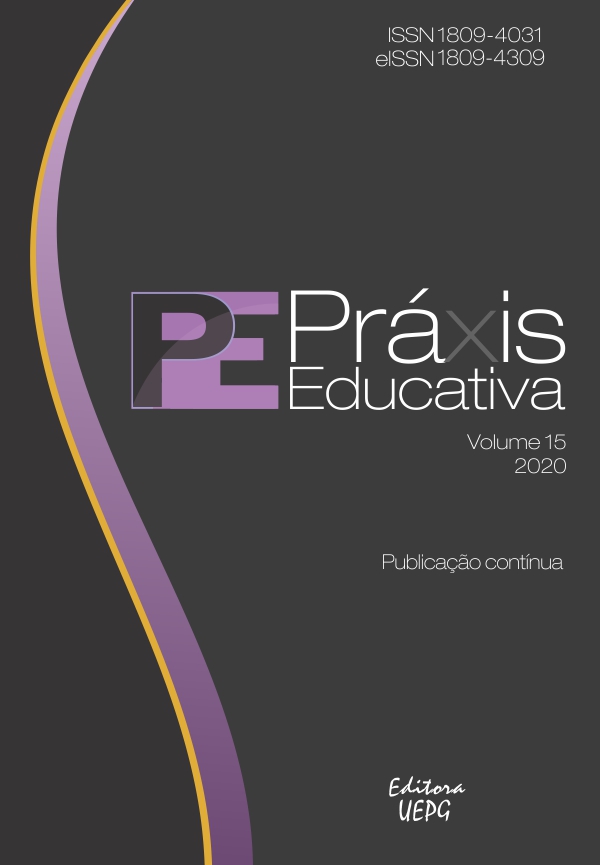Collective resilience to global challenge: a collective wellbeing agenda to transform towards sustained equitable education
DOI:
https://doi.org/10.5212/PraxEduc.v.16344.082Resumo
COVID-19 is a large scale and unpredictable global challenge. It predicts extreme negative outcomes for development – including education. Those with privilege will benefit and those living on the margins will be additionally side-lined. Responses to equalise the unevenness of opportunities to learn is often perceived as goodwill attempts to help ‘a few in distress’ to thrive – with the norm that a majority has well-established resourced pathways towards wellbeing. COVID-19 constitutes a time and space of collective distress. COVID-19 calls for strategies to enable collective wellbeing – not as a luxury but as a necessity. Adversity responses that absorb or adapt to shock continue to maintain, rather than transform, the unequal essence of existing structures. What is needed for equity, also in education, is a transformative response. Social support responses to the global challenge of COVID-19 may offer insight into transformative pathways. Instances of social innovations because of a social contract to privilege collective wellbeing abound in the COVID-19 realm. In Africa, where large-scale adversity is normative, this is not unprecedented. Everyday interdependent resilience mechanisms of this calibre exist, termed flocking responses. Flocking denotes targeted joint resource distribution to counter extreme adversity. In this social response self-protection becomes secondary to collective wellbeing. In this position paper I argue that transformation to that which constitutes ‘new education’ post-COVID-19 may be the result (unintended and possibly sustained) of prolific non-structural flocking responses to equalise pathways that support education across systems. Examples of spontaneous systemic social interventions that resulted from ‘freedom to make choices (for all) with what is available’ could provide transformative insights to intentionally strive for collective wellbeing education agendas and deliberately create pathways for participatory engagement - rather than persisting with structurally engineered strategies maintaining inequality.
Keywords: Collective resilience. Transformative sustainability. Equity and education. COVID-19.
Downloads
Métricas
Downloads
Publicado
Como Citar
Edição
Seção
Licença
Autores que publicam nesta revista concordam com os seguintes termos:
a) Os autores mantêm os direitos autorais e concedem à revista o direito de primeira publicação, com o trabalho simultaneamente licenciado sob a Creative Commons Attribution License que permite o compartilhamento do trabalho com reconhecimento da sua autoria e publicação inicial nesta revista.
b) Os autores são autorizados a assinarem contratos adicionais, separadamente, para distribuição não exclusiva da versão publicada nesta revista (por exemplo, em repositórios institucionais ou capítulos de livros), com reconhecimento da sua autoria e publicação inicial nesta revista).
c) Os autores são estimulados a publicar e distribuir a versão onlline do artigo (por exemplo, em repositórios institucionais ou em sua página pessoal), considerando que isso pode gerar alterações produtivas, bem como aumentar o impacto e as citações do artigo publicado.
d) Esta revista proporciona acesso público a todo o seu conteúdo, uma vez que isso permite uma maior visibilidade e alcance dos artigos e resenhas publicados. Para maiores informações sobre esta abordagem, visite Public Knowledge Project, projeto que desenvolveu este sistema para melhorar a qualidade acadêmica e pública da pesquisa, distribuindo o OJS assim como outros softwares de apoio ao sistema de publicação de acesso público a fontes acadêmicas.
e) Os nomes e endereços de e-mail neste site serão usados exclusivamente para os propósitos da revista, não estando disponíveis para outros fins.

Este obra está licenciado com uma Licença Creative Commons Atribuição 4.0 Internacional.

Este obra está bajo una licencia de Creative Commons Reconocimiento 4.0 Internacional.










